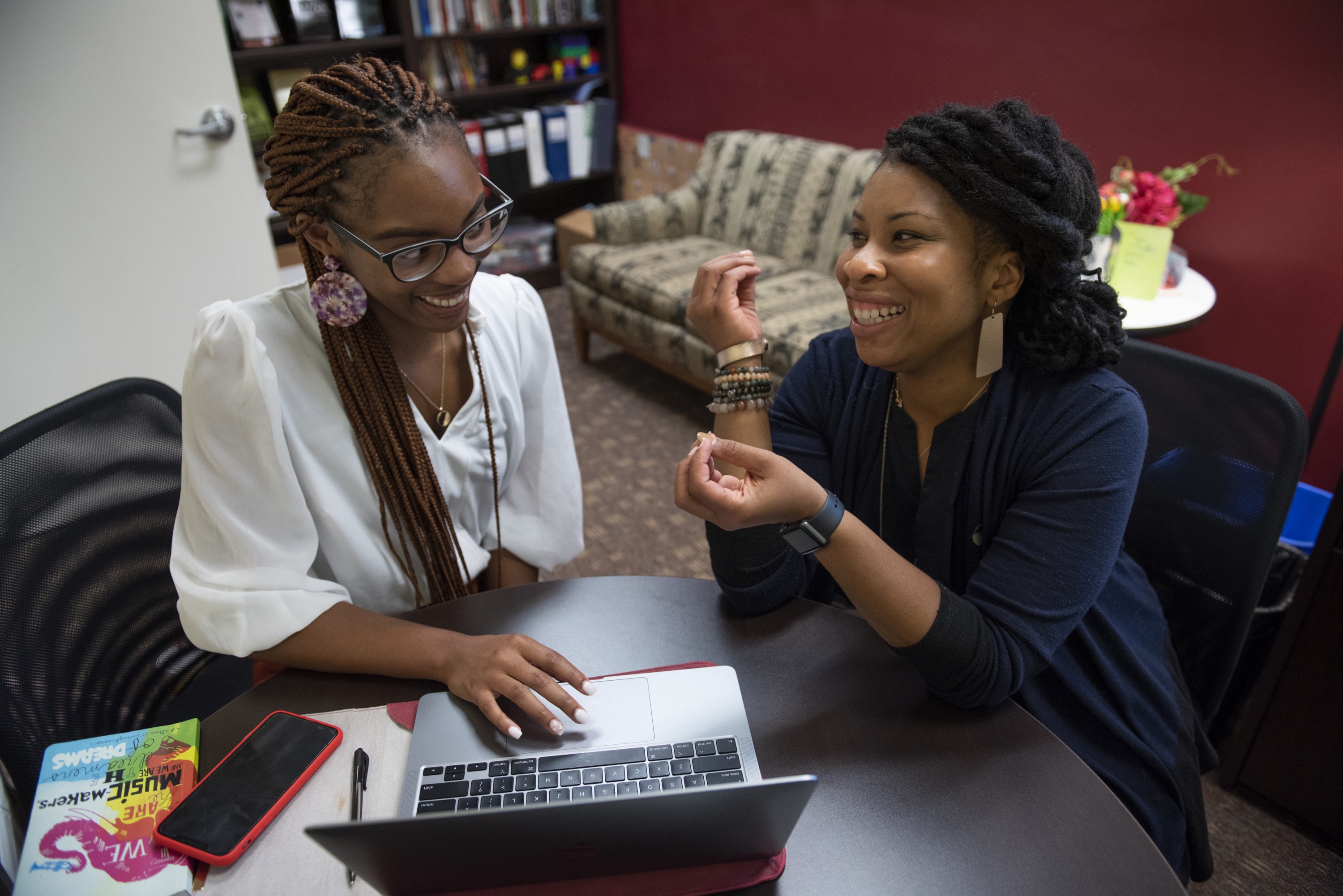As part of her Lumen Prize research, Eukela Little ’22 is analyzing the schema of the strong Black woman and how that affects young Black women.
From a young age, Eukela Little ’22 devoured books about how different parts of the human body work, before fixating on the brain. But by middle school, she grew more curious about the brain’s psychology than its physiology. “From my hometown in Anson County [North Carolina] and personal experience and family, I realized how great of a need there is for mental health services,” says Little, a psychology major with minors in African and African-American studies and women’s, gender and sexualities studies. “I clung to that and started taking more classes about it.”
Little’s first foray into research was in high school at the North Carolina School of Science and Mathematics in Durham, where she worked with a mentor in cognitive psychology at the University of North Carolina at Chapel Hill. A first-generation college student, she was accepted into Elon’s Odyssey Program and knew she wanted to continue studying Black women’s mental health.
The connections she made in her work as a student coordinator with the Center for Race, Ethnicity and Diversity Education led her to Associate Professor of Psychology Buffie Longmire-Avital, who agreed to mentor her when she was just a first-year student. In 2020 she received the Lumen Prize, the university’s most prestigious undergraduate research award, to fund her project, titled “Strong, Black and Selfish: Re-framing the strong Black woman persona to include self-care through a mobile health intervention.”
“We don’t want to take away what the strong Black woman is to Black women because it is something we need to navigate this world. But how can you be a strong Black woman and also care for yourself?”
—Eukela Little ’22
Little is analyzing the schema of the strong Black woman — “a person who is resilient, hyper-independent in a lot of ways, but doesn’t always ask for help,” she says — and how that affects young Black women. Her review of existing literature on the topic showed connections between the strong Black woman schema and depression, anxiety, self-silencing and other mental health issues, but she found little about how to address those problems. “We don’t want to take away what the strong Black woman is to Black women because it is something we need to navigate this world,” Little says. “But how can you be a strong Black woman and also care for yourself?”
After conducting an initial survey, Little began crafting a six-week intervention to guide Black women ages 18-23 who identify with the strong Black woman persona through self-compassion and self-care techniques. She is currently developing the program as a video series that will be housed on a YouTube channel and dedicated website. She hopes to recruit 60-80 participants to complete the program and will examine its impact on their well-being.
Little is also documenting her entire process on Instagram under the name Project SELF, which stands for Self-Empowering Loving Formation, with the goal of making research more accessible for those who have never engaged in it. “She’s creating a project that is bringing her peers along with her as she’s discovering,” Longmire-Avital says. “It’s such a radically freeing way to view research in the social sciences.”
Little will conduct the intervention program this fall and present her findings in the spring. After graduation, she hopes to complete a fellowship before entering a Ph.D. program. “I’m hoping I can continue this post-Elon,” she says. “I’m hoping I can make a career out of it.”
Learn more about “Theme 2: Thrive” of the Boldly Elon strategic plan.



